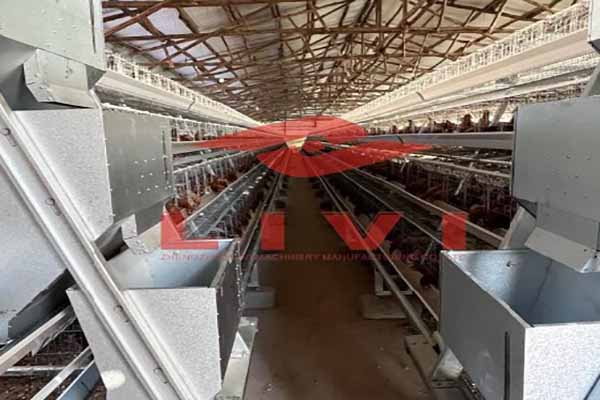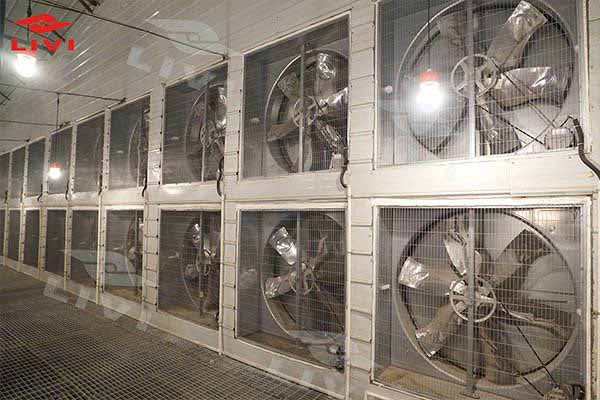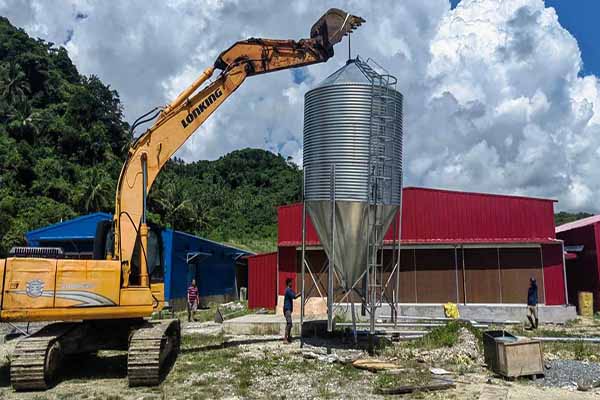Data Analysis Training for Chicken Farming Equipment in Kenya: A Comprehensive Guide
Time : 2025-04-28
Hey there, fellow chicken farming enthusiasts in Kenya! If you’re looking to take your chicken farming business to the next level, you’ve come to the right place. Data analysis is a game-changer for any agricultural venture, and in this article, we’re diving deep into the importance of data analysis training specifically for chicken farming equipment in Kenya. So, let’s get started and turn your chicken coop into a data-driven powerhouse!

Why Data Analysis is Essential for Chicken Farming Equipment in Kenya
First things first, why is data analysis so crucial for your chicken farming equipment? Well, let’s break it down:
- Optimize Efficiency: By analyzing data, you can identify bottlenecks and inefficiencies in your equipment, leading to smoother operations and higher yields.
- Predictive Maintenance: Data analysis helps you predict when equipment will need maintenance, reducing downtime and costly repairs.
- Resource Management: Understanding data can help you make more informed decisions about resource allocation, such as feed, water, and energy.
- Economic Benefits: With better equipment performance and resource utilization, your bottom line is bound to improve.
Understanding the Training Landscape in Kenya
Now that we’ve established the importance of data analysis, let’s talk about the training options available to you in Kenya.
Formal Training Programs
Kenya has several agricultural colleges and universities that offer formal training programs in data analysis and agricultural technology. These programs are typically designed to provide a comprehensive understanding of data analysis techniques and their application in agriculture.
Some of the notable institutions include:
- University of Nairobi, School of Agriculture and Biotechnology
- Kenya Agricultural and Livestock Research Organization (KALRO)
- Moi University, School of Agriculture and Veterinary Sciences
Online Courses and Workshops
For those who prefer the flexibility of learning at their own pace, there are numerous online platforms offering courses in data analysis specifically tailored to agriculture. Websites like Coursera, Udemy, and LinkedIn Learning have a variety of courses that can help you develop your skills.
On-the-Job Training
Some chicken farming equipment manufacturers and suppliers in Kenya offer on-the-job training sessions. This is a great way to learn how to use the equipment effectively and understand how data analysis can enhance its performance.
The Basics of Data Analysis for Chicken Farming Equipment
Before you dive into the specifics of data analysis for chicken farming equipment, it’s important to understand the basics:
Data Collection
Data collection is the foundation of any data analysis. In the context of chicken farming equipment, you’ll want to collect data on various aspects, such as:
- Feed consumption
- Water usage
- Equipment performance metrics
- Ambient conditions (temperature, humidity, etc.)
Data Analysis Techniques

Once you have your data, you can apply various analysis techniques to extract valuable insights. Here are a few you might consider:
- Descriptive Analytics: Summarizing and describing the main features of the dataset. Useful for understanding the overall performance of your chicken farming equipment.
- Predictive Analytics: Using historical data to predict future events. This can help you forecast equipment failures and optimize resource usage.
- Prescriptive Analytics: Recommending actions based on the analysis. This can help you make informed decisions to improve efficiency and reduce costs.
Interpreting the Data
Interpreting the data is where the real magic happens. By understanding the trends and patterns in your data, you can make better decisions that lead to improved performance and profitability.
Case Studies: Real-World Applications
Let’s look at a couple of case studies to see how data analysis has made a difference in chicken farming equipment in Kenya:
Case Study 1: Optimizing Feed Consumption
One chicken farmer in Kenya implemented data analysis to monitor feed consumption in their farm. By analyzing the data, they identified that certain batches of feed were being consumed more slowly than others. This allowed them to adjust their feed procurement strategy, leading to cost savings and improved chicken health.
Case Study 2: Predicting Equipme nt Failure
nt Failure
Another farmer used data analysis to predict equipment failures before they occurred. By monitoring performance metrics and ambient conditions, they were able to schedule maintenance proactively, avoiding costly repairs and downtime.
Final Thoughts
Data analysis training for chicken farming equipment in Kenya is a valuable investment that can lead to significant improvements in your business. Whether you choose to enroll in a formal program, take online courses, or learn on the job, the key is to start collecting and analyzing data today. Who knows? You might just be the next success story in the Kenyan chicken farming industry!
, , , , , , , , , , , , , ,











